-
 Bitcoin
Bitcoin $96,967.1185
-0.97% -
 Ethereum
Ethereum $2,671.8672
-2.29% -
 XRP
XRP $2.5695
-4.76% -
 Tether USDt
Tether USDt $1.0002
0.01% -
 BNB
BNB $645.6047
-1.25% -
 Solana
Solana $171.2167
-1.05% -
 USDC
USDC $1.0000
0.01% -
 Dogecoin
Dogecoin $0.2462
-2.20% -
 Cardano
Cardano $0.7733
-3.19% -
 TRON
TRON $0.2391
-2.12% -
 Chainlink
Chainlink $17.7376
-2.28% -
 Sui
Sui $3.3727
-1.65% -
 Avalanche
Avalanche $24.6569
-0.32% -
 Stellar
Stellar $0.3296
-5.06% -
 Litecoin
Litecoin $130.0046
2.52% -
 Toncoin
Toncoin $3.6504
1.46% -
 Shiba Inu
Shiba Inu $0.0...01532
-0.97% -
 UNUS SED LEO
UNUS SED LEO $9.6755
-0.52% -
 Hedera
Hedera $0.2125
-2.94% -
 Hyperliquid
Hyperliquid $24.8232
0.91% -
 Polkadot
Polkadot $5.1674
3.43% -
 MANTRA
MANTRA $7.5034
-0.01% -
 Bitcoin Cash
Bitcoin Cash $320.8281
-0.64% -
 Ethena USDe
Ethena USDe $0.9978
-0.18% -
 Bitget Token
Bitget Token $4.7462
4.95% -
 Uniswap
Uniswap $8.9431
-4.59% -
 Dai
Dai $0.9997
-0.07% -
 Monero
Monero $228.7110
-0.47% -
 NEAR Protocol
NEAR Protocol $3.3985
0.84% -
 Pepe
Pepe $0.0...09371
-0.86%
What is the Litecoin wallet address?
Litecoin wallets, available in various types, offer secure storage and transaction facilitation for LTC, with hardware wallets like Trezor and Ledger providing enhanced security.
Dec 20, 2024 at 08:58 am

Key Points:
- Litecoin (LTC) is a decentralized, peer-to-peer cryptocurrency created as a "lite" version of Bitcoin.
- Litecoin uses the Scrypt hashing algorithm, which requires less computational power than Bitcoin's SHA-256 algorithm.
- Litecoin offers faster transaction confirmation times (2.5 minutes) than Bitcoin (10 minutes).
- Litecoin wallets are software or hardware devices that store LTC and facilitate transactions, and come in various types.
- Litecoin has a maximum supply of 84 million LTC, which is four times that of Bitcoin.
What is a Litecoin (LTC) Wallet Address?
A Litecoin wallet address is a unique alphanumeric sequence that identifies a specific Litecoin address on the blockchain network. It is used to receive, store, and send LTC. Each Litecoin wallet address consists of 33-34 mixed case characters that start with the number "3" and often end with the letter "q".
Types of Litecoin Wallets:
1. Hardware Wallets:
- Physical devices that store private keys offline, providing enhanced security against hacks and malware.
- Popular hardware wallets for Litecoin include Trezor, Ledger, and SafePal S1.
2. Software Wallets:
- Software applications that can be installed on computers, smartphones, or web browsers.
- Offer convenience and ease of use, but may be less secure than hardware wallets.
- Some popular Litecoin software wallets include Exodus, Atomic Wallet, and Litecoin Core.
3. Desktop Wallets:
- Downloadable software that runs on desktop computers and provides advanced features for managing LTC.
- Examples include Litecoin Core (official client) and Electrum-LTC.
4. Mobile Wallets:
- Smartphone applications that allow users to manage their LTC on the go.
- Offer convenience, but may not be as feature-rich as desktop wallets.
- Popular mobile Litecoin wallets include Exodus and Edge.
5. Paper Wallets:
- Printed physical documents containing public and private keys.
- Offline storage, but inconvenient for daily transactions.
- Can be generated using online or offline tools like bitaddress.org.
6. Exchange Wallets:
- Online platforms where users can trade and store cryptocurrencies, including Litecoin.
- Offer convenience and access to trading pairs, but may not be as secure as other wallet types.
7. Multi-Currency Wallets:
- Software or hardware wallets that support multiple cryptocurrencies, including Litecoin.
- Enable users to manage different assets in one place, but may not offer the same level of security as specialized Litecoin wallets.
FAQs:
Q: How do I find my Litecoin wallet address?
A: Wallet addresses are typically displayed within the wallet interface. You can also generate new addresses from your wallet software or hardware device.
Q: How secure are Litecoin wallets?
A: The security of a Litecoin wallet depends on the type of wallet you use. Hardware wallets offer the highest level of security, while software and exchange wallets may be more vulnerable to hacks.
Q: Can I store Litecoin on multiple wallets?
A: Yes, you can store LTC on multiple wallets, but it is recommended to use a single primary wallet for security reasons.
Q: What is the difference between a public and private key in a Litecoin wallet?
A: A public key is used to receive LTC, while a private key is used to spend LTC. Both keys are mathematically linked and are essential for managing your wallet.
Q: How do I recover a lost Litecoin wallet?
A: If you have lost access to your Litecoin wallet, it is possible to recover it using a backup or seed phrase. Ensure you have a secure backup of your wallet before losing access.
Disclaimer:info@kdj.com
The information provided is not trading advice. kdj.com does not assume any responsibility for any investments made based on the information provided in this article. Cryptocurrencies are highly volatile and it is highly recommended that you invest with caution after thorough research!
If you believe that the content used on this website infringes your copyright, please contact us immediately (info@kdj.com) and we will delete it promptly.
- Ethereum (ETH) vs. IntelMarkets (INTL): Can This New AI-Based Crypto Disrupt the ETH Price in Q2 2025?
- 2025-02-22 01:35:24
- Kanye West's YZY Token May Be Coming This Month, Polymarket Bettors Wager $11M
- 2025-02-22 01:35:24
- Ethereum (ETH) Price Shows Stronger Momentum Than Bitcoin (BTC)
- 2025-02-22 01:35:24
- Pi Network Crashes 50% After Mainnet Launch, Top Rivals to Consider
- 2025-02-22 01:35:24
- Bitcoin Pepe: The 'ETH Killer' Nobody Saw Coming
- 2025-02-22 01:35:24
- XRP May Have a New Catalyst That Could Push Its Price Higher Following the Ongoing Consolidation Phase
- 2025-02-22 01:35:24
Related knowledge
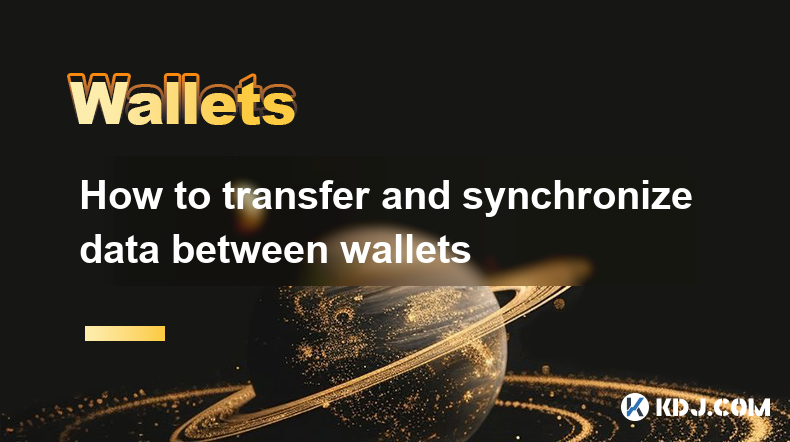
How to transfer and synchronize data between wallets
Feb 21,2025 at 12:25pm
Key Points:Understanding different wallet types and their capabilitiesIdentifying similarities and differences between walletsExploring options for transferring and synchronizing dataEnsuring data security and integrity during transferAddressing common challenges and troubleshooting tipsHow to Transfer and Synchronize Data Between Cryptocurrency Wallets...
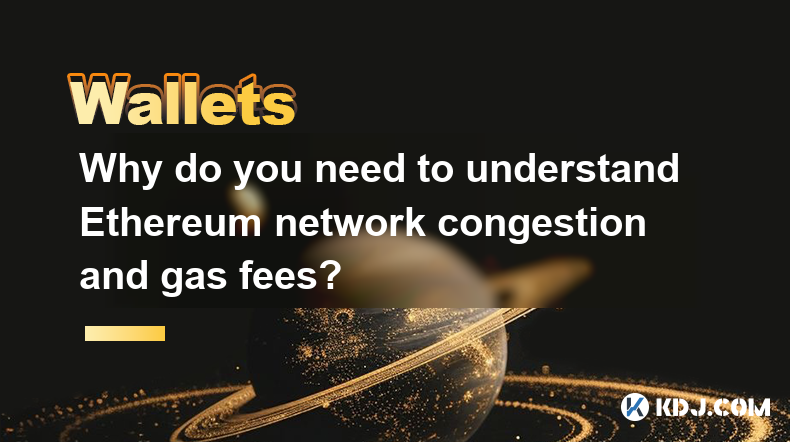
Why do you need to understand Ethereum network congestion and gas fees?
Feb 21,2025 at 04:48am
Key PointsUnderstanding Ethereum Network Congestion and Gas FeesGas Fees ExplainedFactors Affecting Network CongestionStrategies for Minimizing Gas FeesImpact of Ethereum UpgradesUnderstanding Ethereum Network Congestion and Gas FeesThe Ethereum network is a decentralized platform that hosts a vast ecosystem of decentralized applications (dApps), non-fu...
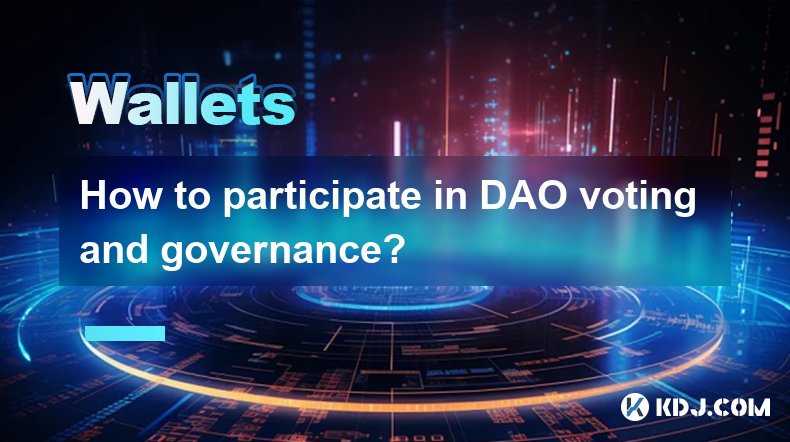
How to participate in DAO voting and governance?
Feb 21,2025 at 03:42pm
Key Points:Overview of DAO Voting and GovernanceUnderstanding DAO Structures and MembershipRole of DAO Tokens and Voting RightsParticipating in Voting and Proposal SubmissionLeveraging Governance Tools and PlatformsImpact of Voting Participation on DAO OutcomesBest Practices for Effective DAO GovernanceHow to Participate in DAO Voting and Governance1. U...
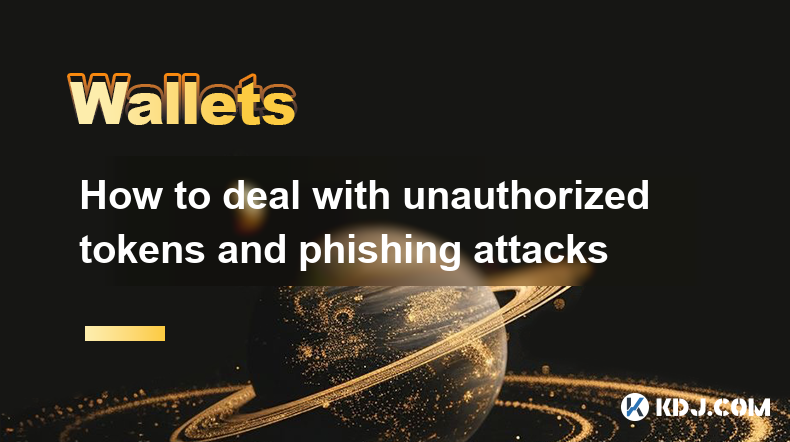
How to deal with unauthorized tokens and phishing attacks
Feb 21,2025 at 05:25am
Dealing with Unauthorized Tokens and Phishing Attacks in the Cryptocurrency CircleThe cryptocurrency market is rife with potential dangers, including unauthorized tokens and phishing attacks. To protect yourself from these threats, it's crucial to take proactive measures and be vigilant in your online activities.Key Points:Unauthorized Tokens: Tokens cr...
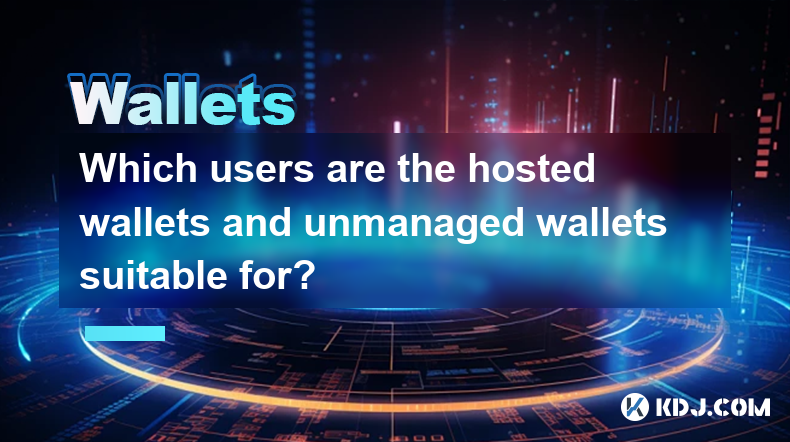
Which users are the hosted wallets and unmanaged wallets suitable for?
Feb 21,2025 at 12:00am
Key PointsDefinition and Characteristics of Hosted Wallets and Unmanaged WalletsAdvantages and Disadvantages of Hosted Wallets and Unmanaged WalletsDetermining Suitability for Hosted Wallets and Unmanaged WalletsExamples of Hosted Wallets and Unmanaged WalletsFrequently Asked Questions and AnswersHosted WalletsDefinition: A hosted wallet is a cryptocurr...
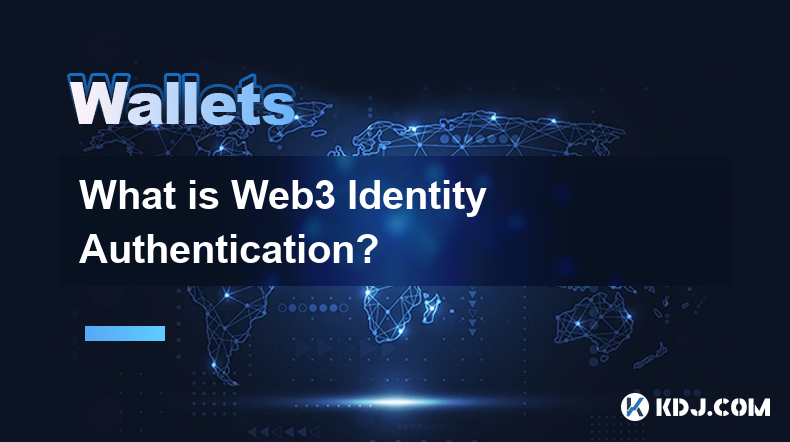
What is Web3 Identity Authentication?
Feb 21,2025 at 06:12am
Key Points:Web3 identity authentication revolutionizes online identity management.Decentralized Identifiers (DIDs) and Verifiable Credentials (VCs) provide secure and privacy-enhancing alternatives to traditional methods.Self-sovereign identity enables individuals to fully own and control their digital identities.Blockchain technology underpins Web3 ide...

How to transfer and synchronize data between wallets
Feb 21,2025 at 12:25pm
Key Points:Understanding different wallet types and their capabilitiesIdentifying similarities and differences between walletsExploring options for transferring and synchronizing dataEnsuring data security and integrity during transferAddressing common challenges and troubleshooting tipsHow to Transfer and Synchronize Data Between Cryptocurrency Wallets...

Why do you need to understand Ethereum network congestion and gas fees?
Feb 21,2025 at 04:48am
Key PointsUnderstanding Ethereum Network Congestion and Gas FeesGas Fees ExplainedFactors Affecting Network CongestionStrategies for Minimizing Gas FeesImpact of Ethereum UpgradesUnderstanding Ethereum Network Congestion and Gas FeesThe Ethereum network is a decentralized platform that hosts a vast ecosystem of decentralized applications (dApps), non-fu...

How to participate in DAO voting and governance?
Feb 21,2025 at 03:42pm
Key Points:Overview of DAO Voting and GovernanceUnderstanding DAO Structures and MembershipRole of DAO Tokens and Voting RightsParticipating in Voting and Proposal SubmissionLeveraging Governance Tools and PlatformsImpact of Voting Participation on DAO OutcomesBest Practices for Effective DAO GovernanceHow to Participate in DAO Voting and Governance1. U...

How to deal with unauthorized tokens and phishing attacks
Feb 21,2025 at 05:25am
Dealing with Unauthorized Tokens and Phishing Attacks in the Cryptocurrency CircleThe cryptocurrency market is rife with potential dangers, including unauthorized tokens and phishing attacks. To protect yourself from these threats, it's crucial to take proactive measures and be vigilant in your online activities.Key Points:Unauthorized Tokens: Tokens cr...

Which users are the hosted wallets and unmanaged wallets suitable for?
Feb 21,2025 at 12:00am
Key PointsDefinition and Characteristics of Hosted Wallets and Unmanaged WalletsAdvantages and Disadvantages of Hosted Wallets and Unmanaged WalletsDetermining Suitability for Hosted Wallets and Unmanaged WalletsExamples of Hosted Wallets and Unmanaged WalletsFrequently Asked Questions and AnswersHosted WalletsDefinition: A hosted wallet is a cryptocurr...

What is Web3 Identity Authentication?
Feb 21,2025 at 06:12am
Key Points:Web3 identity authentication revolutionizes online identity management.Decentralized Identifiers (DIDs) and Verifiable Credentials (VCs) provide secure and privacy-enhancing alternatives to traditional methods.Self-sovereign identity enables individuals to fully own and control their digital identities.Blockchain technology underpins Web3 ide...
See all articles





















































































